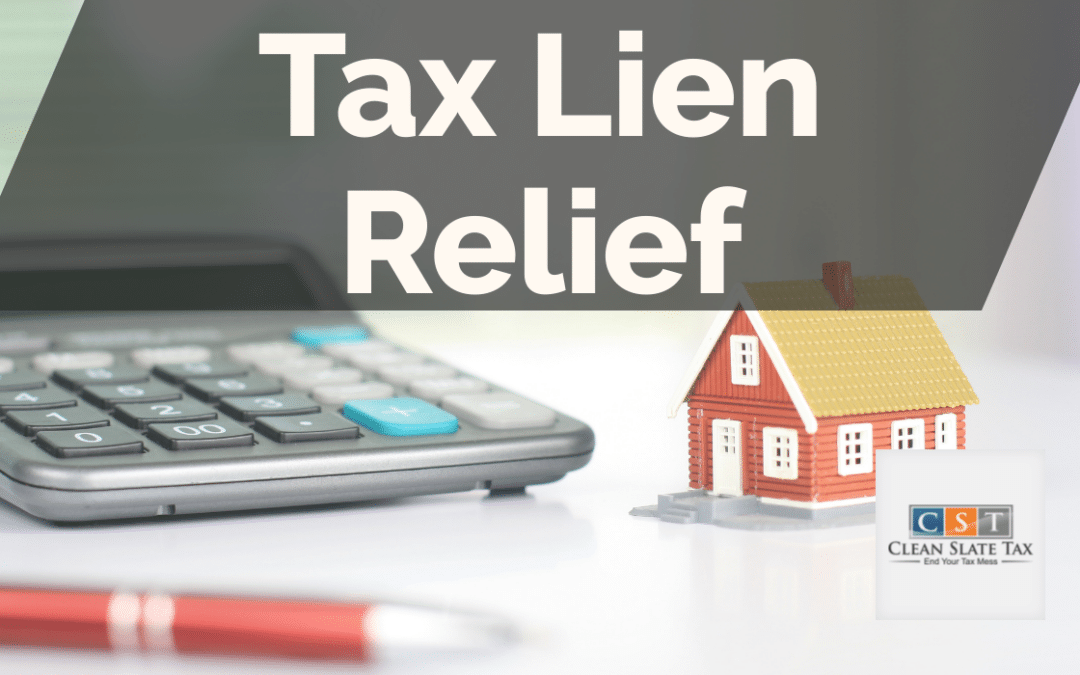Tax Lien Relief: Finding a Solution to Your Tax Problems
Many people are struggling with tax issues, and one of the most challenging situations to be in is having a tax lien placed against you. A tax lien is a legal claim on your property and assets due to unpaid taxes, and it can lead to serious financial consequences and stress. However, there is hope, and there are solutions available to help you resolve your tax lien and find relief.
What is a tax lien?
A tax lien is a legal claim by the government on your property and assets due to unpaid taxes. It acts as a security interest on your assets, making it difficult for you to sell or transfer them, and can damage your credit score. The IRS can file a lien against you if you owe $10,000 or more in unpaid taxes and have not made arrangements to pay them off. State tax agencies can also place liens on your property for unpaid state taxes.
What are the consequences of a tax lien?
A tax lien can have serious consequences on your financial wellbeing, such as:
- Damage to your credit score
- Difficulty selling or refinancing your property
- Limited access to credit and loans
- Difficulty obtaining a job that requires a security clearance
- Seizure of your assets, such as your car or property
How can you resolve a tax lien?
If you have a tax lien placed against you, it’s important to take action to resolve it as soon as possible. Some options for resolving a tax lien include:
Payment in full
If you have the funds to pay off your tax debt in full, this is the best option for resolving a tax lien. Once you pay off your balance, the IRS or state agency will release the lien and your credit report will be updated.
Installment agreement
If you can’t afford to pay your tax balance in full, you may be able to set up an installment agreement with the IRS or state agency. This allows you to make payments over time and release the lien once you’ve paid off your balance in full.
Offer in compromise
An offer in compromise is a settlement agreement between you and the IRS or state agency, in which you offer to pay a portion of your tax debt in exchange for the release of the lien. This option is only available in certain circumstances, such as if you can’t afford to pay your balance or if paying it would create a financial hardship.
Bankruptcy
In some cases, you may be able to discharge your tax debt through bankruptcy, which can also release the lien. However, this is a complex process and should only be pursued with the help of an experienced bankruptcy attorney.
How can you prevent a tax lien?
The best way to prevent a tax lien is to stay current on your tax payments and file your taxes on time. However, if you’re struggling with tax debt, you may be eligible for relief programs that can help you pay off your balance and avoid liens, such as:
Offer in compromise
As mentioned above, an offer in compromise can help you settle your tax debt for less than you owe, which can prevent a lien from being placed against you.
Installment agreement
An installment agreement can help you pay off your tax debt over time and avoid a lien. This is a good option if your tax debt is relatively low and you can afford to make the monthly payments.
Currently Not Collectible status
If you’re facing financial hardship and can’t afford to pay your tax debt, you may qualify for Currently Not Collectible (CNC) status. This means that the IRS or state agency will temporarily suspend collection activities and will not place a lien against you.
Conclusion
Tax liens can be scary and stressful, but there are solutions available to help you resolve your tax issues and find relief. Whether you choose to pay off your balance in full, set up an installment agreement, or pursue an offer in compromise, it’s important to take action and address your tax debt as soon as possible. If you’re struggling with tax issues, consult with a tax professional or attorney to discuss your options and find a solution that works for you.
FAQs
How can I check if there is a tax lien against me?
You can check the public records at your county recorder’s office to see if there is a lien against your property. You can also request a copy of your credit report and look for any liens listed there.
What happens if I ignore a tax lien?
If you ignore a tax lien, the IRS or state agency may take further action, such as seizing your assets or garnishing your wages. It’s important to address a tax lien as soon as possible to prevent these consequences.
Can a tax lien be removed from my credit report?
Yes, once you’ve paid off your tax debt or resolved the lien through an installment agreement or offer in compromise, the IRS or state agency will release the lien and your credit report will be updated accordingly.





